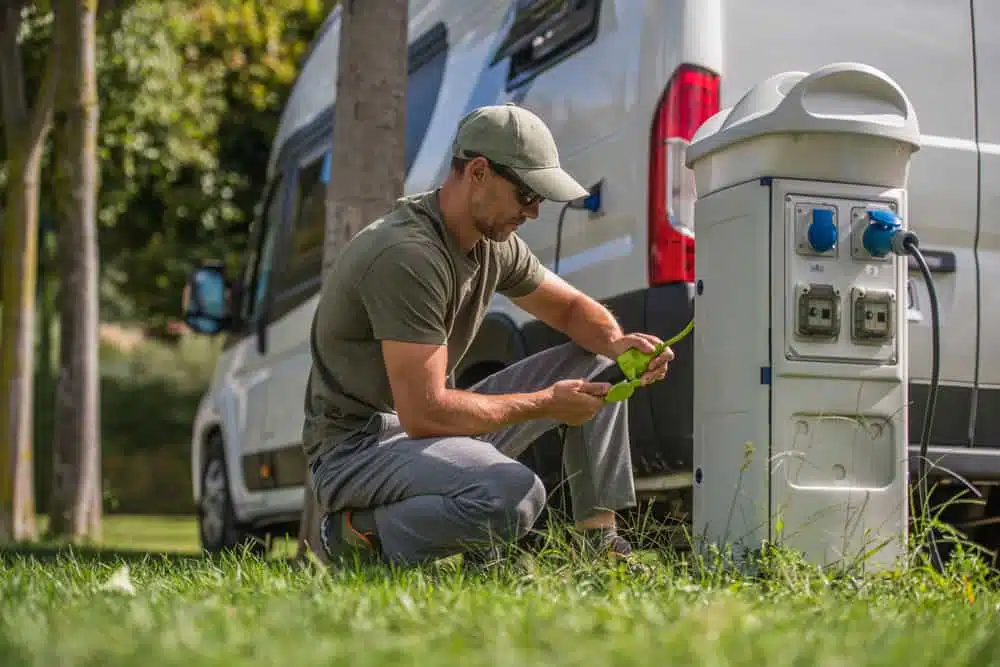Holiday park owners have warned the UK government they will not be able to cope with the rising number of electric cars. One Somerset park, which holds a thousand static caravans, has only three electric charging points.
The owner has been told the National Grid can only support a few more, leaving most electric car drivers unable to recharge on-site, according to a report by the BBC.
Alan House, the owner of Unity Resort, said that electric cars are much hungrier and hundreds of charging points would require a massive job.
“The whole park would have to be dug up, big new cables laid. The supply to the site from the Grid would need to be quadrupled, if not more. And holiday parks are in remote areas, at the end of the line. That’s why people come. The grid couldn’t cope with it,” he said.
Holiday park industry leaders are lobbying the government to take charge in remote areas seriously.
Martin Cox, chair of the Holiday and Home Parks Association, said: “In our area, there just aren’t many places to charge an electric car. So instead of enjoying themselves and visiting local attractions, they will be driving around trying to find a charger.”
Cox compared the challenge of electric car chargers to the rural broadband battle. For years, rural areas were left out of high-speed broadband networks because of the small resident population. Similarly, there are fewer high-speed electric charging points in remote areas. He said: “Government is going to have to invest in charging networks in our area.”
There are some positive signs of progress. Dorset has recently received £1m funding from a government scheme aimed at improving electric vehicle (EV) charging infrastructure. But other electric motoring campaigners argue that caravan parks should not have to provide electric car chargers.
Simon Williams, who campaigns on electric car issues for the RAC, said: “People should go to an electric forecourt, much like a petrol station, and recharge quickly there.”
The RAC has joined other electric motoring campaigners calling for action from the government. Williams said: “The price has to come down, or we’re going to put people off switching to electric cars.”
RAC research found electric motorists pay 75p/kWh at rapid chargers, which is expensive compared to just 34p plugging in at home. And crucially, 75p/kWh makes electric driving more expensive than petrol. Compared with a petrol car running at 45 miles to the gallon, 75p/kWh electricity is equivalent to paying £2.30 per liter for petrol.
In Bristol, a new tech start-up has mapped the UK’s charging network. They call it ZapMap and it enables drivers to find a charger, see whether it is working and available, and what price it charges.
Mel Shufflebotham, the founder of ZapMap, is lobbying for a VAT cut for public chargers.
“If you charge at home, you pay 5% VAT on the electricity. But charge on the road at a place like this, and you pay 20%. We want them equalized at 5%,” he said.


